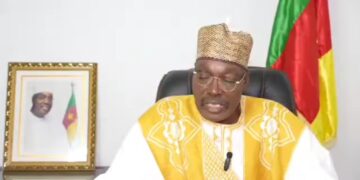![]()
The Nigerian Senate has responded sternly to recent criticisms from Pastor Tunde Bakare, warning the cleric and political figure against targeting the 10th National Assembly out of what it described as personal frustration and political undertones.
Chairman of the Senate Committee on Media and Public Affairs, Senator Yemi Adaramodu, issued a written response to Bakare’s comments, which he said were laced with sweeping generalizations and misleading claims that could erode public trust in democratic institutions.
“While we respect the right of every citizen, including Pastor Bakare, to express opinions on national issues, there is a line between constructive criticism and rhetoric that borders on contempt,” Adaramodu stated.
He acknowledged Bakare’s contributions to national conversations in the past but noted that his latest comments lacked depth and fairness. “Pastor Bakare, a cleric and political voice in his own right, has previously contributed to national discourse in ways that spurred reflection and debate,” he said. “However, his most recent statements veer away from constructive criticism into rhetoric, unfortunately laced with contempt and unsubstantiated claims.”
Adaramodu reminded the public that Bakare was not just a preacher but also a past presidential aspirant and a former vice-presidential candidate. “It is important to remember that Pastor Bakare was a presidential aspirant in the last general elections and has previously run for the office of vice president. These political aspirations color the context of his statements,” he noted.
The Senate also took issue with Bakare’s comparison of the current legislature with previous assemblies. “It’s noteworthy that the Executive has never presented any unconstitutional agenda before the 10th National Assembly, unlike the infamous Third Term agenda which Pastor Bakare referenced,” Adaramodu said. “To use that as a benchmark for performance is misleading.”
He added, “To cast aspersions on the entire institution based on personal frustrations or future political ambitions is unfair and unproductive to our democratic journey.”
The Senate spokesman pointed out that Pastor Bakare, being a man with a legal background, should know better than to speak on matters that are before a court. “He is well aware of the constitutional boundaries that guide public commentary—particularly on matters that are sub judice.”
Defending the Senate’s relationship with the Executive, Adaramodu clarified that institutional cooperation does not mean weakness. “While some may attempt to portray an unnecessary adversarial dynamic between the National Assembly and the Executive as a sign of checks and balances, true legislative oversight is measured by principled engagements and tangible results, not performative hostility.”
He also recalled past disagreements between the National Assembly and the Presidency, including the recent issue of a proposed state of emergency in Rivers State. “Those were instances of constructive dissent, not empty opposition.”
The Senate reaffirmed its commitment to engaging in nation-building and invited Bakare to engage in meaningful dialogue rather than provocative public sermons.
“We urge all public figures—especially those with significant civic and spiritual influence—to temper their criticisms with facts and a sense of national responsibility,” Adaramodu said. “Our democracy, though imperfect, is best nurtured through thoughtful contributions that inspire reform, not resentment.”
He concluded, “We are confident that with time, Pastor Bakare, like he has done with past National Assemblies he once criticized, may find reasons to commend the 10th Assembly for its service to the Nigerian people.”

























